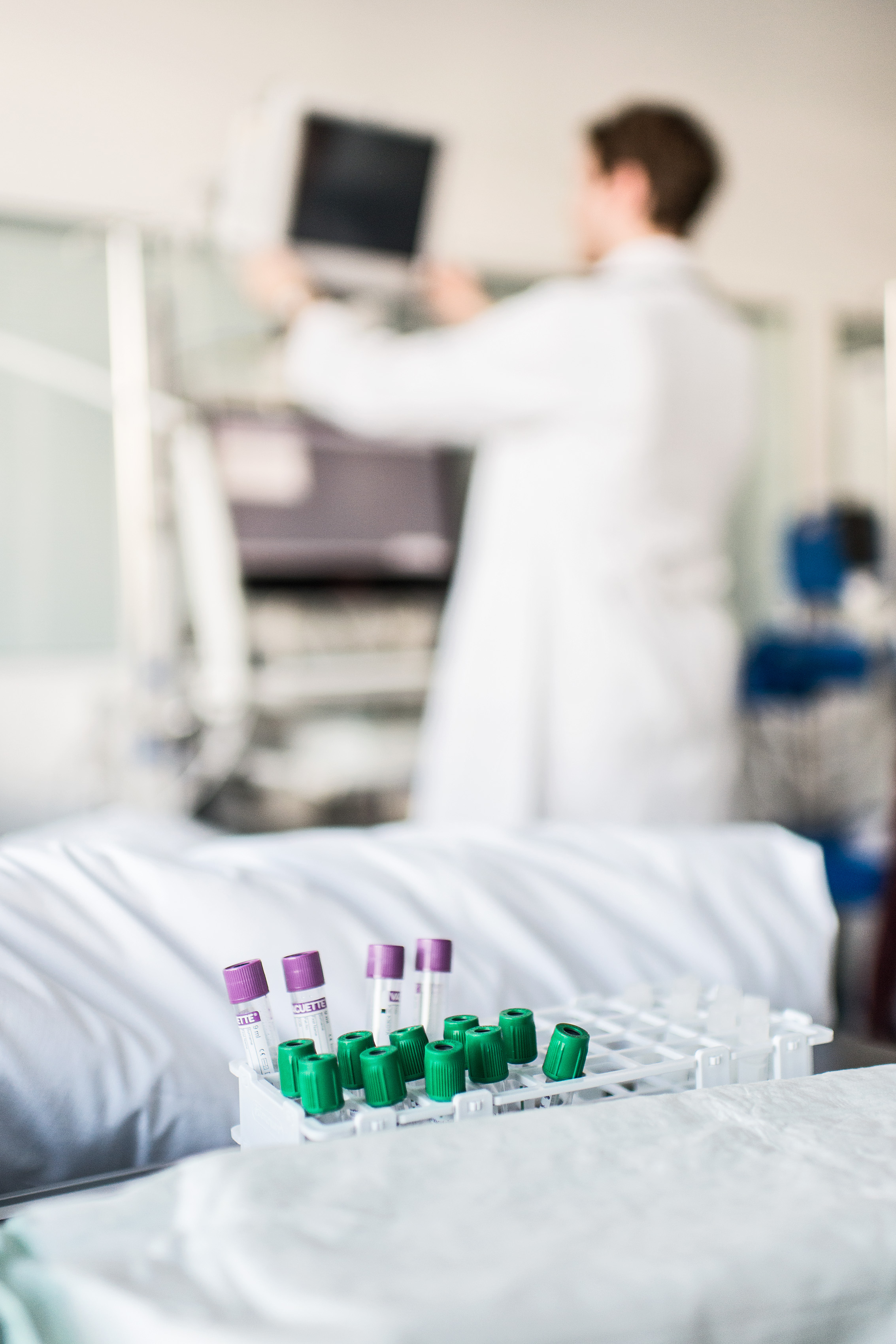BEAT-COVID – advanced therapy strategies against the pandemic
Fraunhofer consortium to jointly develop therapies and platform technologies against COVID-19 and other infectious diseases

The present SARS-coronavirus-2 pandemic with all its effects on society – both health and economic – highlights the urgency of developing new therapies for COVID-19 treatment. At the same time, it demonstrates the necessity to become well prepared for new virus infections we may be facing in the future. To help control the current pandemic and brace for novel pathogens that may cause future pandemics, Fraunhofer researchers have initiated the project BEAT-COVID to develop independent novel therapy strategies and build up platform technologies that will enable rapid and targeted development of new drugs against as yet unknown pathogens that may emerge.
Coordinated by the Fraunhofer Institute for Toxicology and Experimental Medicine ITEM, the other partners in the BEAT-COVID project are the Fraunhofer Institutes for Cell Therapy and Immunology IZI, for Silicate Research ISC, for Applied Polymer Research IAP, and for Reliability and Microintegration IZM, supported by cooperating universities. Based on their expertise in preclinical and clinical drug development, the consortium wants to address the following objectives: prevent the virus from entering host cells, combat the virus itself, and control the excessive immune response triggered by the virus.
"We believe that the development of advanced therapies against infectious diseases, in particular against SARS-CoV-2 and the lung disease COVID-19, is highly relevant. Because to date, it is unresolved whether vaccination alone is the optimal strategy for COVID-19 prevention. We will certainly need therapies in addition to treat patients who have contracted the disease – there is great potential in novel drugs," says Prof. Jens Hohlfeld, pulmonologist and Division Director of Airway Research at Fraunhofer ITEM, who is heading the Fraunhofer consortium BEAT-COVID. With strategies based on viral vectors and siRNA (small interfering RNA), the team, first of all, wants to keep the SARS-coronavirus-2 from entering cells in the airways and, secondly, stop replication of the virus inside infected cells. Another aim of this project is to enable control of the excessive immune response in COVID-19 patients by inhaled administration of anti-inflammatory antibodies. Inhaled administration via the airways will deliver the antibodies quickly and directly to the main site of action of SARS-CoV-2, which is the lung.
"The present pandemic will not be the last one mankind will be confronted with. But is has clearly shown us the necessity to be well prepared for future infections with new viruses," says Prof. Hohlfeld. The BEAT-COVID consortium wants to achieve this by establishing platform technologies based on which novel antiviral drugs can rapidly be developed and tested. In particular for drugs based on genes, platform technologies would basically be easy to develop – because once established, the methods and processes could be adapted relatively easily to specific new pathogens.
Cooperating institutes:
Fraunhofer ITEM, Fraunhofer IZI, Fraunhofer ISC, Fraunhofer IAP, Fraunhofer IZM
P.R.I.T. Professional In-Vitro Technologies
Fraunhofer IZM supports Fraunhofer ITEM with a theoretical study to improve their professional in-vitro technologies (P.R.I.T.) with the successful packaging systems from Berlin. The special feature of the P.R.I.T. system is that cell cultures can be directly exposed to aerosols, such as Covid 19 or other anti-viral drugs, in a defined environment and their reaction can be measured. Currently, the researchers are still working on making measurements on all samples at the same time. In the BEAT project, the researchers at Fraunhofer IZM are working on the evaluation of exactly these possibilities for continuous measurement of cell viability via in-situ - i.e. while the cells are still exposed to the aerosol in the P.R.I.T. Box. Various groups from the department System Integration & Interconnection Technologies at the institute are working together on this project.
Their common goal at the end of the project is a clear vision of how they can work together with Fraunhofer ITEM to improve the underlying equipment in order to carry out in vitro research - i.e. research without animal experiments - faster and safer. The experts are looking more closely at the so-called TEER measurement by optimizing the measuring head in order to simplify the methods for evaluating the state of the cells.
Last modified:
 Fraunhofer Institute for Reliability and Microintegration IZM
Fraunhofer Institute for Reliability and Microintegration IZM